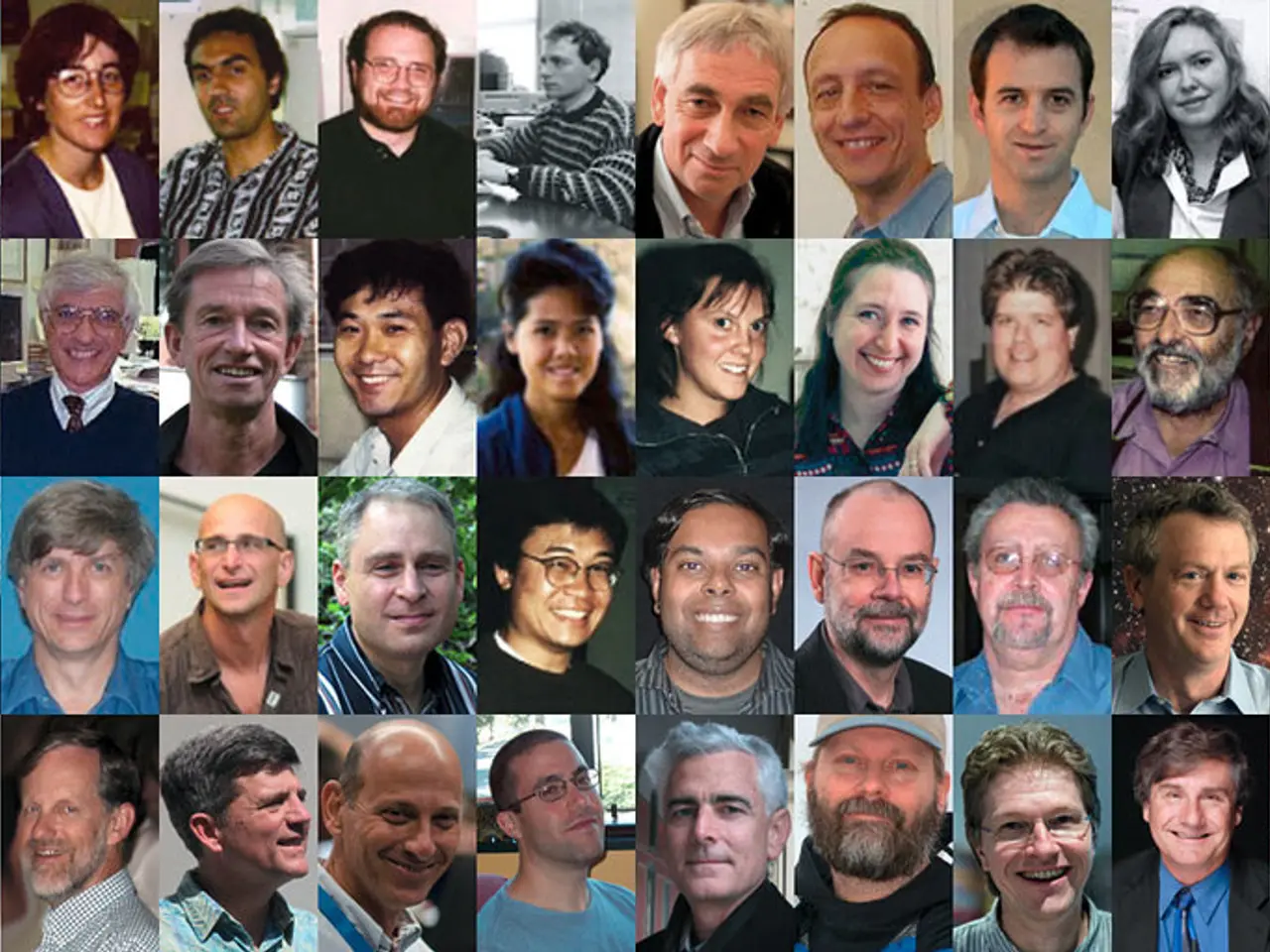Results of Altered DNA Sequences: Frameshift Mutations
In the realm of genetics, somatic mutations have emerged as a critical player in the development of diseases, particularly cancer. These changes in the DNA code, which occur after birth and affect only certain cells in the body, can transform our cells into cancerous rebels by hijacking genes responsible for controlling cell growth.
Identification of somatic mutations can guide the development of targeted therapies, offering a beacon of hope in the fight against cancer. These therapies can be used to block the growth of cancer cells with specific somatic mutations, making treatment more effective and less harmful to healthy cells.
One of the common causes of genetic instability leading to somatic mutations is defects in DNA repair mechanisms. Deficiencies in DNA repair pathways, such as homologous recombination repair (HRR) and mismatch repair (MMR), lead to genomic instability. For instance, mutations in BRCA1, BRCA2 impair HRR, causing error-prone repair of double-strand breaks and accumulation of somatic mutations[5]. Similarly, loss of function in MMR genes like MLH1, MSH2, MSH6, and PMS2 causes microsatellite instability and genome-wide hypermutation[4][5].
Endogenous DNA damage and repair errors also contribute significantly. Deficiency in DNA polymerase β, which is involved in base excision repair and active DNA demethylation, leads to a substantial increase in insertions/deletions (indels) and structural variants, especially at CpG dinucleotides in neural progenitor cells, thus increasing mutagenesis during development[1].
Environmental factors, such as ultraviolet radiation or harmful chemicals, often induce somatic mutations by damaging DNA, leading to errors during repair or replication. These environmental causes are a common source of genetic instability in somatic cells and are major contributors to diseases such as cancer[2].
Mutations in certain tumor suppressor and oncogenes, such as TP53, KRAS, EGFR, can exacerbate genomic instability by disrupting cell cycle regulation and DNA maintenance pathways, promoting further somatic mutations in cancers[3].
Prevention is key in managing somatic mutations. Maintaining a healthy lifestyle, embracing genetic counseling, and avoiding harmful substances can empower individuals to protect their genetic health. Lifestyle modifications, such as exercise, a healthy diet, and avoiding tobacco and excessive alcohol, can help prevent somatic mutations.
In the quest to combat somatic mutations, researchers are developing advances in DNA repair and stability maintenance. These advancements promise to prevent somatic mutations, offering a promising future for cancer prevention and treatment.
Next-generation sequencing (NGS) can be used to identify specific somatic mutations causing cancer, providing clues about a cancer patient's prognosis. Radiation can shatter the genetic code, leading to chromosomal rearrangements, base substitutions, and cell death. However, understanding the genetic landscape of a patient's cancer can help doctors tailor treatment to the specific mutations present, improving outcomes and quality of life.
Genetic counseling can help individuals understand their inherited risk for certain somatic mutations, providing them with the knowledge to make informed decisions about their health. As our understanding of somatic mutations grows, so too does our ability to prevent, diagnose, and treat these genetic aberrations, offering hope for a future where cancer is no longer a death sentence.
Science has uncovered the vital role of somatic mutations in the development of medical-conditions such as cancer, contributing to genetic instability and cell growth abnormalities. Identifying these mutations can lead to targeted health-and-wellness strategies, including the development of therapies designed to block cancerous cell growth and prevent further disease progression. For instance, understanding the genetic factors behind cancer, such as mutations in BRCA1 and BRCA2, can guide precision medicine, while next-generation sequencing (NGS) enables the identification of specific somatic mutations, empowering individuals to take preventive measures and improve their quality of life.




